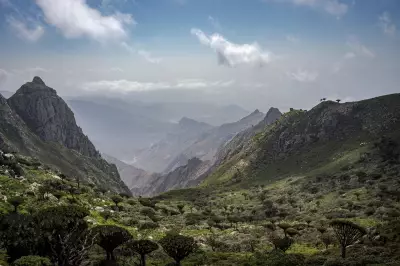
The 'Big Durian' Takes the Crown: Jakarta's Meteoric Rise
In a landmark announcement, the United Nations has declared Jakarta the world's largest city, a title it now holds with an estimated 42 million residents. This positions the Indonesian capital ahead of previous contenders like Dhaka in Bangladesh and Tokyo, Japan, according to the UN's latest World Urbanisation Prospects report.
This represents a staggering ascent for the city, often nicknamed 'The Big Durian' in a nod to New York's 'Big Apple'. Back in the 2018 rankings, Tokyo held the top spot, while Jakarta languished far behind in 33rd place. Since the year 2000, the city has experienced an average annual population growth of nearly 2%, fuelling its rapid climb to the top.
A Booming Economy Shadowed by Deep-Rooted Problems
Jakarta serves as the powerful economic engine of Indonesia, one of Southeast Asia's wealthiest economies. It contributes a massive nearly one-fifth of the entire country's GDP. Its economy is diverse and robust, thriving in sectors such as banking, trading, finance, and the manufacturing of electronics, automotive parts, chemicals, and biomedicine.
However, this economic success story is set against a backdrop of profound challenges. The city is grappling with a trifecta of crises: devastating annual floods, horrific pollution levels, and some of the worst traffic congestion on the planet. A key vulnerability is its low elevation, sitting just 36 feet above sea level—for comparison, London is 78 feet above.
The northern districts, which face the Java Sea, are especially prone to frequent flooding during the torrential rainy season. More alarmingly, Jakarta is one of the fastest-sinking cities globally, with certain areas subsiding at a rate of up to 12 inches per year.
The Future: A New Capital and an Uncertain Path
These severe structural threats, combined with the relentless pressure of a growing population, have prompted the Indonesian government to take drastic action. Successive administrations have pushed for the relocation of the capital city away from Jakarta.
In 2022, then-President Joko Widodo declared the development of a new capital, Nusantara. This monumental project, slated for completion by 2045, aims to alleviate the immense strain on Jakarta. However, the initiative has already encountered significant hurdles, including construction delays, a shortage of foreign investment, and complications regarding land and management.
For the foreseeable future, despite its immense challenges, 'The Big Durian' will continue to stand as the undeniable powerhouse of the Indonesian economy, a metropolis of stark contrasts where immense vitality coexists with existential threats.





